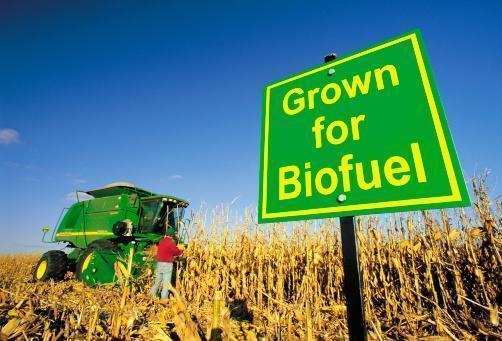Context
-
Recently, the Ministry of Road Transport and Highways has published a draft notification, seeking comments from the public for adoption of E20 Fuel.
Key Details
-
E20 fuel is a blend of 20% of ethanol with gasoline, as an automotive fuel and for the adoption of mass emission standards for this fuel.
-
It will also help in reducing emissions of carbon dioxide, hydrocarbons, etc.
-
It will help reduce the oil import bill, thereby saving foreign exchange and boosting energy security.
-
The compatibility of the vehicle to the percentage of ethanol in the blend of ethanol and gasoline shall be defined by the vehicle manufacturer and the same shall be displayed on the vehicle by putting a clearly visible sticker.
Back to Basics
About Ethanol
- Ethanol is a common by-product that comes from agricultural feedstock like corn, hemp, potato, etc. It can be used as a bio-fuel in Flexi-fuel vehicles.
- It is greener than gasoline because the corn and crop plantations absorb carbon dioxide from the atmosphere as they grow.
- While the fuel still releases CO2 when you burn it, the net increase is comparatively lower.
- However, ethanol is less efficient as a fuel. It has lower energy content than energy-rich gasoline and diesel.
- The rule delivers less power when burned, which in return results in more fuel consumption and lower mileage.
- Additionally, blends over E20 (20% ethanol) is highly corrosive for older vehicles as the alcohol can break down old rubber seals and can damage engines.
About Biofuels
- Any hydrocarbon fuel that is derived and produced from an organic matter, is called a biofuel. Biofuels can be solid, liquid or gaseous.
- It can be used to replace or can be used in addition to diesel, petrol or other fossil fuels for transport, stationary, portable and other applications.
Generations of Biofuels:
- Biofuels are broadly classified into 04 categories based on their raw materials. They are:
- 1st-generation biofuels: Made from sugar, starch, vegetable oil, or animal fats using conventional technology. Common first-generation biofuels include Bioalcohols, Biodiesel, Vegetable oil, Bioethers, Biogas.
- 2nd-generation biofuels: Produced from non-food crops, such as cellulosic biofuels and waste biomass (stalks of wheat and corn, and wood). Examples include advanced biofuels like biohydrogen, bioethanol.
- 3rd-generation biofuels: Produced from microorganisms like algae.
- 4th-generation biofuels: Made from genetically engineered crops which consume high amounts of carbon.
Initiatives by Government of India to promote Biofuel
- National Biofuel Policy 2018
- Ethanol Blended Petrol (EBP) programme
- GOBAR (Galvanizing Organic Bio-Agro Resources) DHAN scheme, 2018
- Pradhan Mantri JI-VAN Yojana, 2019
- Repurpose Used Cooking Oil (RUCO)
For Biodiversity & Environment Current Affairs: Click here

